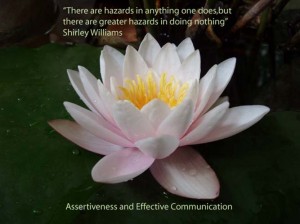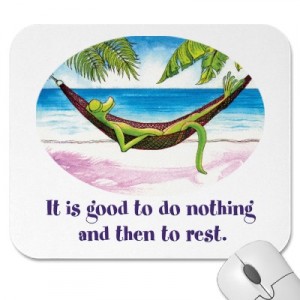I have been quiet on the tragedy of this past week in Connecticut. Like so many of you, this event has touched me so deeply, emotionally creating havoc for any parent or teacher. The feeling of helplessness and without the ability to support this community is sometimes a feeling that is overwhelming. At the same time we must also be aware of the effects on our own children – hundreds of miles away, as they very quickly pick up on our emotions and will respond accordingly.
The following are suggestions from National Association of School Psychologists. It is unfortunate that in the past few years we have had to review these tips too many times, as our community, country and the world have faced devastating events, all of which affect the feelings of safety that our children deal with. As you review them, feel free to share them with your friends and neighbors. I would like to thank NASP for providing this information.
If there is anything that Balanced Life Skills can do for anyone in our community please call or email us and we will help or assist in finding the help you need to provide a peaceful culture and environment for you and your children.
Tips for Parents and Teachers
Whenever a national tragedy occurs, such as terrorist attacks or natural disasters, children, like many people, may be confused or frightened. Most likely they will look to adults for information and guidance on how to react. Parents and school personnel can help children cope first and foremost by establishing a sense of safety and security. As more information becomes available, adults can continue to help children work through their emotions and perhaps even use the process as a learning experience.
All Adults Should:
- Model calm and control. Children take their emotional cues from the significant adults in their lives. Avoid appearing anxious or frightened.
- Reassure children that they are safe and (if true) so are the other important adults in their lives. Depending on the situation, point out factors that help insure their immediate safety and that of their community.
- Remind them that trustworthy people are in charge. Explain that the government emergency workers, police, firefighters, doctors, and the military are helping people who are hurt and are working to ensure that no further tragedies occur.
- Let children know that it is okay to feel upset. Explain that all feelings are okay when a tragedy like this occurs. Let children talk about their feelings and help put them into perspective. Even anger is okay, but children may need help and patience from adults to assist them in expressing these feelings appropriately.
- Observe children’s emotional state. Depending on their age, children may not express their concerns verbally. Changes in behavior, appetite, and sleep patterns can also indicate a child’s level of grief, anxiety or discomfort. Children will express their emotions differently. There is no right or wrong way to feel or express grief.
- Look for children at greater risk. Children who have had a past traumatic experience or personal loss, suffer from depression or other mental illness, or with special needs may be at greater risk for severe reactions than others. Be particularly observant for those who may be at risk of suicide. Seek the help of mental health professional if you are at all concerned.
- Tell children the truth. Don’t try to pretend the event has not occurred or that it is not serious. Children are smart. They will be more worried if they think you are too afraid to tell them what is happening.
- Stick to the facts. Don’t embellish or speculate about what has happened and what might happen. Don’t dwell on the scale or scope of the tragedy, particularly with young children.
- Keep your explanations developmentally appropriate. Early elementary school children need brief, simple information that should be balanced with reassurances that the daily structures of their lives will not change. Upper elementary and early middle school children will be more vocal in asking questions about whether they truly are safe and what is being done at their school. They may need assistance separating reality from fantasy. Upper middle school and high school students will have strong and varying opinions about the causes of violence and threats to safety in schools and society. They will share concrete suggestions about how to make school safer and how to prevent tragedies in society. They will be more committed to doing something to help the victims and affected community. For all children, encourage them to verbalize their thoughts and feelings. Be a good listener!
- Monitor your own stress level. Don’t ignore your own feelings of anxiety, grief, and anger. Talking to friends, family members, religious leaders, and mental health counselors can help. It is okay to let your children know that you are sad, but that you believe things will get better. You will be better able to support your children if you can express your own emotions in a productive manner. Get appropriate sleep, nutrition, and exercise.
What Parents Can Do:
- Focus on your children over the week following the tragedy. Tell them you love them and everything will be okay. Try to help them understand what has happened, keeping in mind their developmental level.
- Make time to talk with your children. Remember if you do not talk to your children about this incident someone else will. Take some time and determine what you wish to say.
- Stay close to your children. Your physical presence will reassure them and give you the opportunity to monitor their reaction. Many children will want actual physical contact. Give plenty of hugs. Let them sit close to you, and make sure to take extra time at bedtime to cuddle and to reassure them that they are loved and safe.
- Limit your child’s television viewing of these events. If they must watch, watch with them for a brief time; then turn the set off. Don’t sit mesmerized re-watching the same events over and over again.
- Maintain a “normal” routine. To the extent possible stick to your family’s normal routine for dinner, homework, chores, bedtime, etc., but don’t be inflexible. Children may have a hard time concentrating on schoolwork or falling asleep at night.
- Spend extra time reading or playing quiet games with your children before bed. These activities are calming, foster a sense of closeness and security, and reinforce a sense of normalcy. Spend more time tucking them in. Let them sleep with a light on if they ask for it.
- Safeguard your children’s physical health. Stress can take a physical toll on children as well as adults. Make sure your children get appropriate sleep, exercise, and nutrition.
- Consider praying or thinking hopeful thoughts for the victims and their families. It may be a good time to take your children to your place of worship, write a poem, or draw a picture to help your child express their feelings and feel that they are somehow supporting the victims and their families.
- Find out what resources your school has in place to help children cope. Most schools are likely to be open and often are a good place for children to regain a sense of normalcy. Being with their friends and teachers can help. Schools should also have a plan for making counseling available to children and adults who need it.
What Schools Can Do:
- Assure children that they are safe and that schools are well prepared to take care of all children at all times.
- Maintain structure and stability within the schools. It would be best, however, not to have tests or major projects within the next few days.
- Have a plan for the first few days back at school. Include school psychologists, counselors, and crisis team members in planning the school’s response.
- Provide teachers and parents with information about what to say and do for children in school and at home.
- Have teachers provide information directly to their students, not during the public address announcements.
- Have school psychologists and counselors available to talk to students and staff who may need or want extra support.
- Be aware of students who may have recently experienced a personal tragedy or a have personal connection to victims or their families. Even a child who has merely visited the affected area or community may have a strong reaction. Provide these students extra support and leniency if necessary.
- Know what community resources are available for children who may need extra counseling. School psychologists can be very helpful in directing families to the right community resources.
- Allow time for age appropriate classroom discussion and activities. Do not expect teachers to provide all of the answers. They should ask questions and guide the discussion, but not dominate it. Other activities can include art and writing projects, play acting, and physical games.
- Be careful not to stereotype people or countries that might be associated with the tragedy. Children can easily generalize negative statements and develop prejudice. Talk about tolerance and justice versus vengeance. Stop any bullying or teasing of students immediately.
- Refer children who exhibit extreme anxiety, fear or anger to mental health counselors in the school. Inform their parents.
- Provide an outlet for students’ desire to help. Consider making get well cards or sending letters to the families and survivors of the tragedy, or writing thank you letters to doctors, nurses, and other health care professionals as well as emergency rescue workers, firefighters and police.
- Monitor or restrict viewing scenes of the event as well as the aftermath.

 Sometimes life comes at us so fast and hard that we feel like we are in a fight, a fight for our lives. When it seems that nothing is going our way, when everyone is picking on us, when nothing is going right – that is when we become the most stressed out. We start using words like – never, all the time, everyone, nothing – words that are negative about ourselves and our situation that make it sound like the answer is simply not there.
Sometimes life comes at us so fast and hard that we feel like we are in a fight, a fight for our lives. When it seems that nothing is going our way, when everyone is picking on us, when nothing is going right – that is when we become the most stressed out. We start using words like – never, all the time, everyone, nothing – words that are negative about ourselves and our situation that make it sound like the answer is simply not there. Stop and think for a moment about how you would respond to this if your best friend was feeling like this and they said mean, horrible things about themselves, that they had started believing about themselves. What would you say or do? Wouldn’t you tell them “No, stop talking like that. You have a lot going good for you.” Wouldn’t you list for them the good things about them and what you like about them?
Stop and think for a moment about how you would respond to this if your best friend was feeling like this and they said mean, horrible things about themselves, that they had started believing about themselves. What would you say or do? Wouldn’t you tell them “No, stop talking like that. You have a lot going good for you.” Wouldn’t you list for them the good things about them and what you like about them?

 When difficult situations come up are you willing to speak up? You may ask yourself if you are being embarrassed, bullied, lied to, or having a conflict, will you share your thoughts and feelings honestly with the other person or group? Do you know how to do so effectively and without coming off as aggressive?
When difficult situations come up are you willing to speak up? You may ask yourself if you are being embarrassed, bullied, lied to, or having a conflict, will you share your thoughts and feelings honestly with the other person or group? Do you know how to do so effectively and without coming off as aggressive?